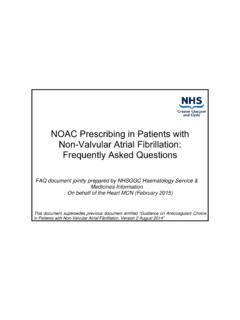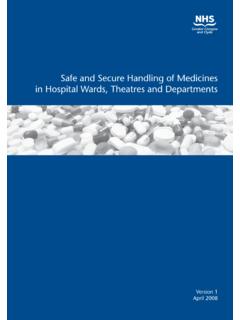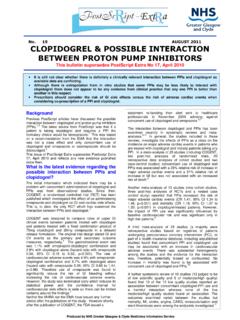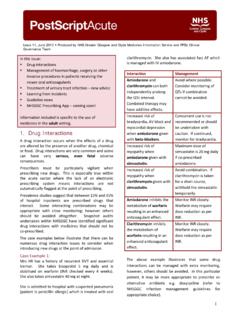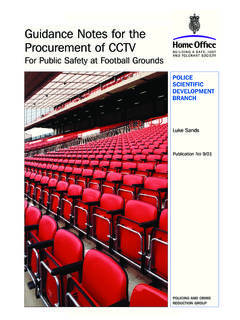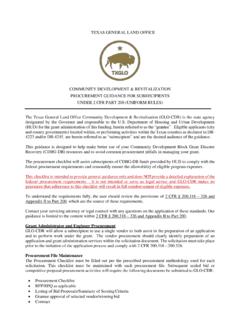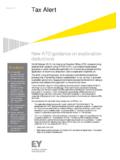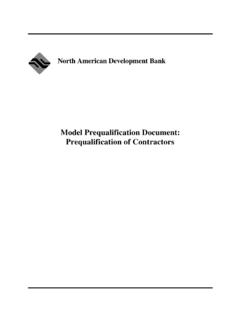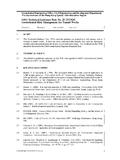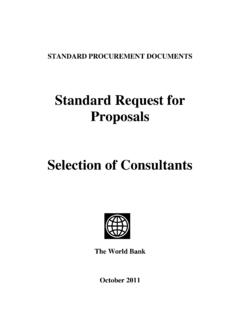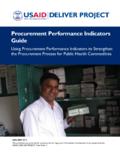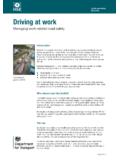Transcription of SECTION 9.3: EXPANDED ACCESS / COMPASSIONATE USE / …
1 NHS GREATER GLASGOW AND CLYDE POLICIES RELATING TO THE MANAGEMENT OF MEDICINES SECTION 9: UNLICENSED MEDICINES DOCUMENT PRODUCED BY: J. WATT DATE OF LAST REVISION: NOVEMBER 2014 DOCUMENT APPROVED BY: AREA DRUG AND THERAPEUTICS COMMITTEE DATE APPROVED: DECEMBER 2014 PLANNED REVIEW DATE: DECEMBER 2016 PAGE 1 OF 4 SECTION : EXPANDED ACCESS / COMPASSIONATE USE / NAMED PATIENT SUPPLY PROGRAMMES FOR UNLICENSED MEDICINES GUIDANCE NOTES 1. SCOPE This document should be used in conjunction with the NHS Greater Glasgow and Clyde (NHSGGC) Acute Division Unlicensed Medicines Policy. It is intended to provide guidance on the procurement, supply, authorisation and prescribing of unlicensed medicines obtained on a COMPASSIONATE use or named patient basis. 2. DEFINITIONS COMPASSIONATE USE The European Medicines Agency (EMA) defines COMPASSIONATE use as: ..a treatment option that allows the use of an unauthorised medicine.
2 COMPASSIONATE -use programmes are for patients in the European Union (EU) who have a disease with no satisfactory authorised therapies or cannot enter a clinical trial. They are intended to facilitate the availability to patients of new treatment options under development . Member countries can ask the EMA's Committee for Medicinal Products for Human Use (CHMP) to provide an opinion on how to administer, distribute and use certain medicines for COMPASSIONATE use. The CHMP also identifies which patients may benefit from COMPASSIONATE -use programmes. COMPASSIONATE use programmes can only be put in place by the EMA, for medicines that are expected to benefit patients: with life-threatening, long-lasting or seriously disabling illnesses who are seriously ill and who cannot be treated satisfactorily with licensed medicines, or who have a disease for which no medicine has yet been licensed.
3 That are not eligible for ongoing clinical trials It should be noted that other COMPASSIONATE use programmes may be proposed and developed by specific companies without EMA endorsement. NAMED PATIENT SUPPLY In some cases doctors may approach a manufacturer directly to request the supply of a new medicine that does not have a UK product licence, to be used for a patient under their direct responsibility. This is often called supply on a named patient basis . EXPANDED ACCESS PROGRAMMES Some manufacturers may run EXPANDED ACCESS programmes . A company may choose to run an EXPANDED ACCESS programme to allow early ACCESS to their medicine, for example, for patients who have been treated with the medicine during a clinical trial and wish to continue treatment. In an EXPANDED ACCESS programme, patients are usually followed up in the same way as patients in a clinical trial.
4 The MHRA s early ACCESS to medicines programme is under development and full details are not yet available. 3. BACKGROUND It should be recognised that all medicines whether supplied via a COMPASSIONATE use or EXPANDED ACCESS programmes or as a named patient supply are unlicensed medicines, and therefore information on their safety and efficacy may in some cases be limited to early phase clinical trials. It is therefore essential that there are appropriate systems for good medicines governance in place before a medicine is authorised for use in NHS GGC. NHS GREATER GLASGOW AND CLYDE POLICIES RELATING TO THE MANAGEMENT OF MEDICINES SECTION 9: UNLICENSED MEDICINES DOCUMENT PRODUCED BY: J. WATT DATE OF LAST REVISION: NOVEMBER 2014 DOCUMENT APPROVED BY: AREA DRUG AND THERAPEUTICS COMMITTEE DATE APPROVED: DECEMBER 2014 PLANNED REVIEW DATE: DECEMBER 2016 PAGE 2 OF 4 Currently there are only a limited number of COMPASSIONATE use programmes endorsed by the EMA.
5 Examples of previously approved COMPASSIONATE use programmes include ledipasvir/sofosbuvir, daclatasvir/sofosbuvir combinations for hepatitis C and IV zanamavir for confirmed pandemic H1N1 infection. Companies supplying medicines via a COMPASSIONATE use programme will have formal processes for collection of data on the safety and efficacy of medicines supplied via these programmes and the institution/ healthcare professionals being supplied with the medicines are likely to be asked to sign a formal contract and adhere to a protocol for use. However, the details of such arrangements may differ between companies, particularly if the medicine is supplied from outwith the European Union. ACCESS to medicines via COMPASSIONATE use programmes usually ends once the medicine receives a product licence. Similarly, for EXPANDED ACCESS programmes, manufacturers will require healthcare professionals to enter into a formal agreement about patient monitoring and the provision of data.
6 Named patient supplies are more informal arrangements between the pharmaceutical company and the prescriber. Although the company will record what they supply, there is often no central register for the group of patients that are being treated in this way. 4. GUIDANCE NOTES Regardless of whether a medicine is supplied through a formal COMPASSIONATE use or EXPANDED ACCESS programme or as a more informal named patient supply, the policy requirements for procurement, authorisation, supply and prescribing are as those described in the NHSGGC Unlicensed Medicines Policy. PROCUREMENT Medicines supplied via named patient supply, COMPASSIONATE use or EXPANDED ACCESS programmes must be procured through the standard NHSGGC Pharmacy procurement systems. As soon as a clinical pharmacist becomes aware that a clinician may wish to obtain an unlicensed medicine via one of these programmes, the pharmacist should inform the Pharmacy Distribution Centre (PDC) Unlicensed Medicines Team so that the appropriate arrangements can be put in place in a timely manner.
7 To ensure that there is an appropriate and consistent risk assessment, individual clinicians must not negotiate direct supplies to themselves or directly to their patients. AUTHORISATION AUTHORISATION OF FIRST SUPPLY The first authorisation of a medicine via an EXPANDED ACCESS / COMPASSIONATE use/ named patient supply programme will set a precedent for future use. Authorisation of the first supply of a medicine through one of these programmes should be by the Associate Medical Director. It should be noted that the responsibility lies with the requesting clinician to clearly describe the current evidence of benefit versus risk in relation for the use of the unlicensed medicine. Prior to authorising the first supply, the AMD should discuss the request with a senior pharmacist, the General Manager and the Lead Clinician for the speciality. The following should be considered: 1.
8 Are the requirements set out in the contract/ agreement with the pharmaceutical company reasonable and achievable? 2. Is the patient/ patient population for whom the medicine is being requested clearly defined? 3. Are the costs being met by the pharmaceutical company for the full course of treatment? NHSGGC would ideally seek reassurance that the pharmaceutical company meets the cost of the unlicensed medicine for the full course of treatment or for continuous therapy until the medicine is accepted for use by the Scottish Medicines Consortium (SMC). As a minimum, it would be expected that the manufacturer would NHS GREATER GLASGOW AND CLYDE POLICIES RELATING TO THE MANAGEMENT OF MEDICINES SECTION 9: UNLICENSED MEDICINES DOCUMENT PRODUCED BY: J. WATT DATE OF LAST REVISION: NOVEMBER 2014 DOCUMENT APPROVED BY: AREA DRUG AND THERAPEUTICS COMMITTEE DATE APPROVED: DECEMBER 2014 PLANNED REVIEW DATE: DECEMBER 2016 PAGE 3 OF 4meet the cost until the SMC advice is publicly available.
9 Suggested wording for inclusion in the contract is shown at appendix 1. 4. Does the use of the medicine require the use of co-administration of other medicines or devices or the use of additional services or resources? 5. Does the use of the medicine set a precedent for this patient or for future patients once the medicine is licensed? 6. The available data on efficacy and safety of the ULM including published papers 7. Scope / scale for use of medicine / number of patients being treated 8. Details of the monitoring data to be collected 9. Details of the patient consent process 10. A copy of the proposed agreement with the pharmaceutical company should be available Consideration should be given of whether the medicine needs to be included in the following year s horizon scanning/ budget setting exercise. If other medicines or services are required this may need wider service discussion or consideration of the implications of the in-year budget.
10 If the AMD agrees to approve the use of the medicine through an EXPANDED ACCESS , named patient or COMPASSIONATE use programme the following wording should be included in the response to the treating consultant. The approval of the medicine for this patient through the COMPASSIONATE use/ EXPANDED ACCESS programme is not intended to create a precedent for future treatment of this patient or future treatment of other patients with this condition once the medicine is licensed. This will be dependent, initially, upon advice from the Scottish Medicines Consortium. If the medicine is accepted, then it will likely be included within the Formulary subject to the agreement of relevant funding through the annual budget setting exercise, and the decision to prescribe will rest with the local specialist. If the medicine is not recommended, then it will be excluded from Formularies and prescribing approval will be required on a case by case basis, depending on the outcome of an Individual Patient Treatment Request.
